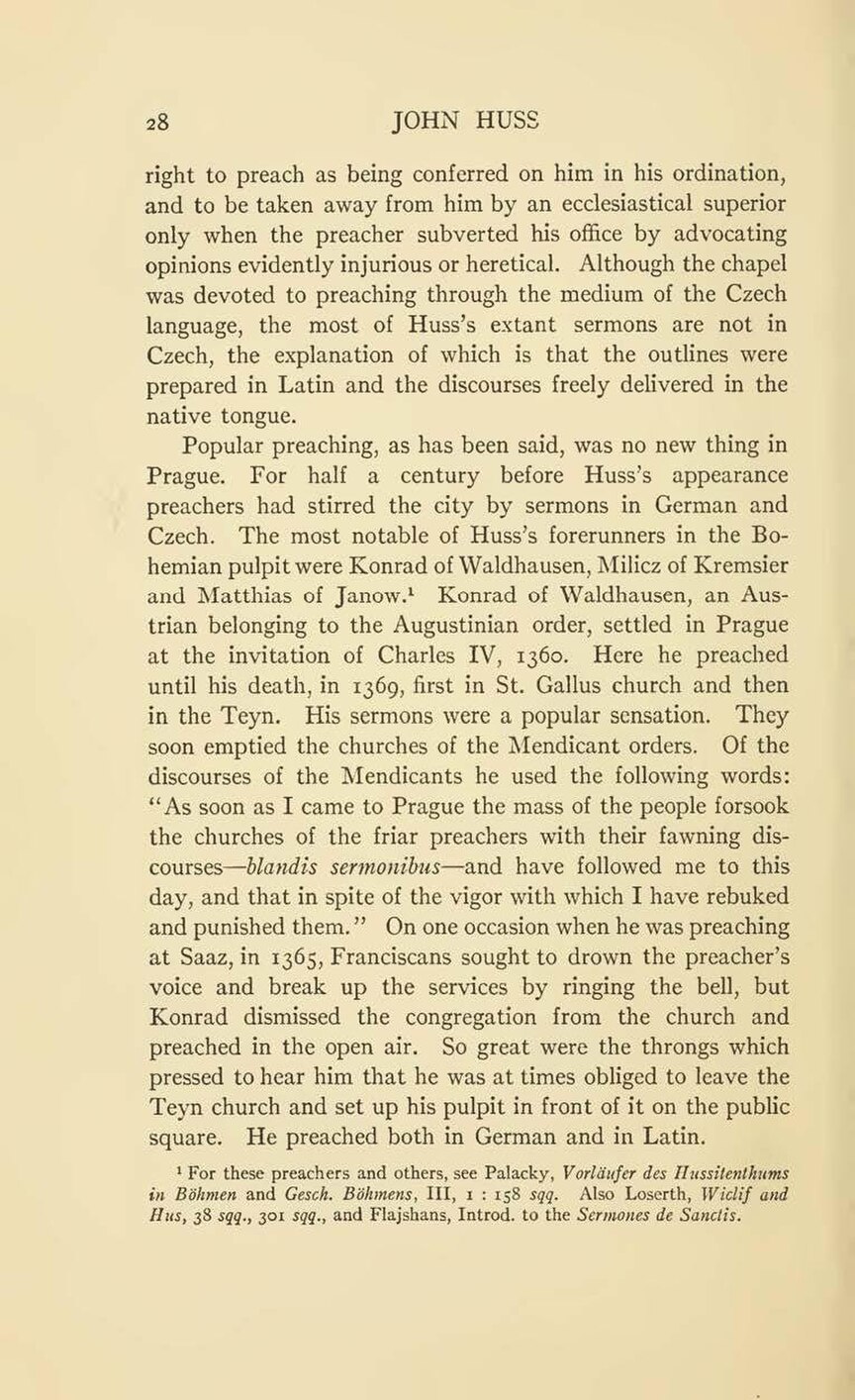right to preach as being conferred on him in his ordination, and to be taken away from him by an ecclesiastical superior only when the preacher subverted his office by advocating opinions evidently injurious or heretical. Although the chapel was devoted to preaching through the medium of the Czech language, the most of Huss’s extant sermons are not in Czech, the explanation of which is that the outlines were prepared in Latin and the discourses freely delivered in the native tongue.
Popular preaching, as has been said, was no new thing in Prague. For half a century before Huss’s appearance preachers had stirred the city by sermons in German and Czech. The most notable of Huss’s forerunners in the Bohemian pulpit were Konrad of Waldhausen, Milicz of Kremsier and Matthias of Janow.[1] Konrad of Waldhausen, an Austrian belonging to the Augustinian order, settled in Prague at the invitation of Charles IV, 1360. Here he preached until his death, in 1360, first in St. Gallus church and then in the Teyn. His sermons were a popular sensation. They soon emptied the churches of the Mendicant orders. Of the discourses of the Mendicants he used the following words: “As soon as I came to Prague the mass of the people forsook the churches of the friar preachers with their fawning discourses—blandis sermonibus—and have followed me to this day, and that in spite of the vigor with which I have rebuked and punished them.” On one occasion when he was preaching at Saaz, in 1365, Franciscans sought to drown the preacher’s voice and break up the services by ringing the bell, but Konrad dismissed the congregation from the church and preached in the open air. So great were the throngs which pressed to hear him that he was at times obliged to leave the Teyn church and set up his pulpit in front of it on the public square. He preached both in German and in Latin.
- ↑ For these preachers and others, see Palacky, Vorläufer des Hussitenthums in Böhmen and Gesch. Böhmens, III, 1: 158 sqq. Also Loserth, Wiclif and Hus, 38 sqq., 301 sqq., and Flajshans, Introd. to the Sermones de Sanctis.
